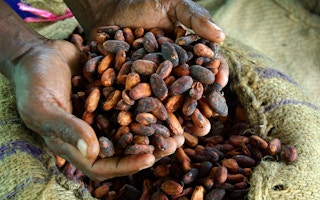Together, the two NGOs certify some 182,000 cocoa, coffee, and tea farmers around the world. The merger will allow those farmers, and any new farmers who choose to work with the future Rainforest Alliance, to perform one audit of their operations rather than two and avoid the administrative workload of having to adhere to two sets of standards and certification systems.
Han de Groot, currently the executive director of UTZ, will assume the role of CEO for the new organisation. He told sustainable business news site edie.net that streamlining the certification process for farmers will allow them to better meet the growing global demand for sustainably sourced products and invest resources more efficiently in sustainability practices.
“Many farms at the moment are either double certified or even triple certified to other standards, and this doesn’t do a good service to them or bring many additional benefits,” de Groot said. “The new standard will give them better guidance and one system to comply with; it saves them a lot of costs and efforts.”
The merged groups plan to publish a single standard for their unified certification program by early 2019. The new standard will draw from the standards currently set forth by UTZ and the Sustainable Agriculture Network (SAN), which Rainforest Alliance presently uses as the basis of its certification program.
“
Many farms at the moment are either double certified or even triple certified to other standards, and this doesn’t do a good service to them or bring many additional benefits.
Han de Groot, CEO, UTZ
“This standard will build upon the best elements of the current SAN and UTZ standards for sustainable agriculture, with insight from a range of stakeholders,” Rainforest Alliance noted in a FAQ on its website. “It will provide a framework for farmers to improve their livelihoods while protecting the landscapes where they live and work.”
The new Rainforest Alliance will also create a single auditing process for certificate holders.
Nigel Sizer, the current president of the Rainforest Alliance, will assume the title of Chief Program Officer, Advocacy, Landscapes and Livelihoods in the new organisation. In a statement announcing the impending merger, he characterized the two organizations as a natural fit.
“Our missions are very similar, to work with farmers and communities in an effort to protect the natural environment and help mitigate the effects of climate change on a global scale,” Sizer said. “By uniting with UTZ, and partnered with SAN, we will combine our strengths to expand our impact on improving the lives of farmers and forest communities, protecting biodiversity and championing companies that are on the path to sustainability.”
Roberto Vélez, CEO of the Colombian Coffee Growers Federation, which represents more than half a million coffee growers, said that the thousands of family farms in Colombia certified by both UTZ and The Rainforest Alliance would benefit from the merger.
“
By uniting with UTZ, and partnered with SAN, we will combine our strengths to expand our impact on improving the lives of farmers and forest communities, protecting biodiversity and championing companies that are on the path to sustainability.
Nigel Sizer, president, Rainforest Alliance
“It should bring great benefits to them, such as being audited against one standard instead of two, thereby making major savings on auditing costs,” Vélez said in a statement. “This should allow coffee growers to invest more efficiently in sustainability and increase their income, hence contributing to their economic sustainability.”
Larger players in the agricultural industry welcomed the news, as well, citing their hope that it would help ensure availability of sustainably sourced commodities even as demand for responsibly produced products continues to grow.
Pascal Baltussen, a vice president at Mars Chocolate, said in a statement that “For years Mars has supported certification with both Rainforest Alliance and UTZ as part of our commitment to certify our entire cocoa supply chain as produced in a sustainable manner.”
But he added that “To achieve sustainability, even greater impact and assurance is required, therefore we have high expectations that this merger will result in a positive transformation of farmer livelihoods and land use practices on a greater scale, which is urgently needed.”
This story was published with permission from Mongabay.com








